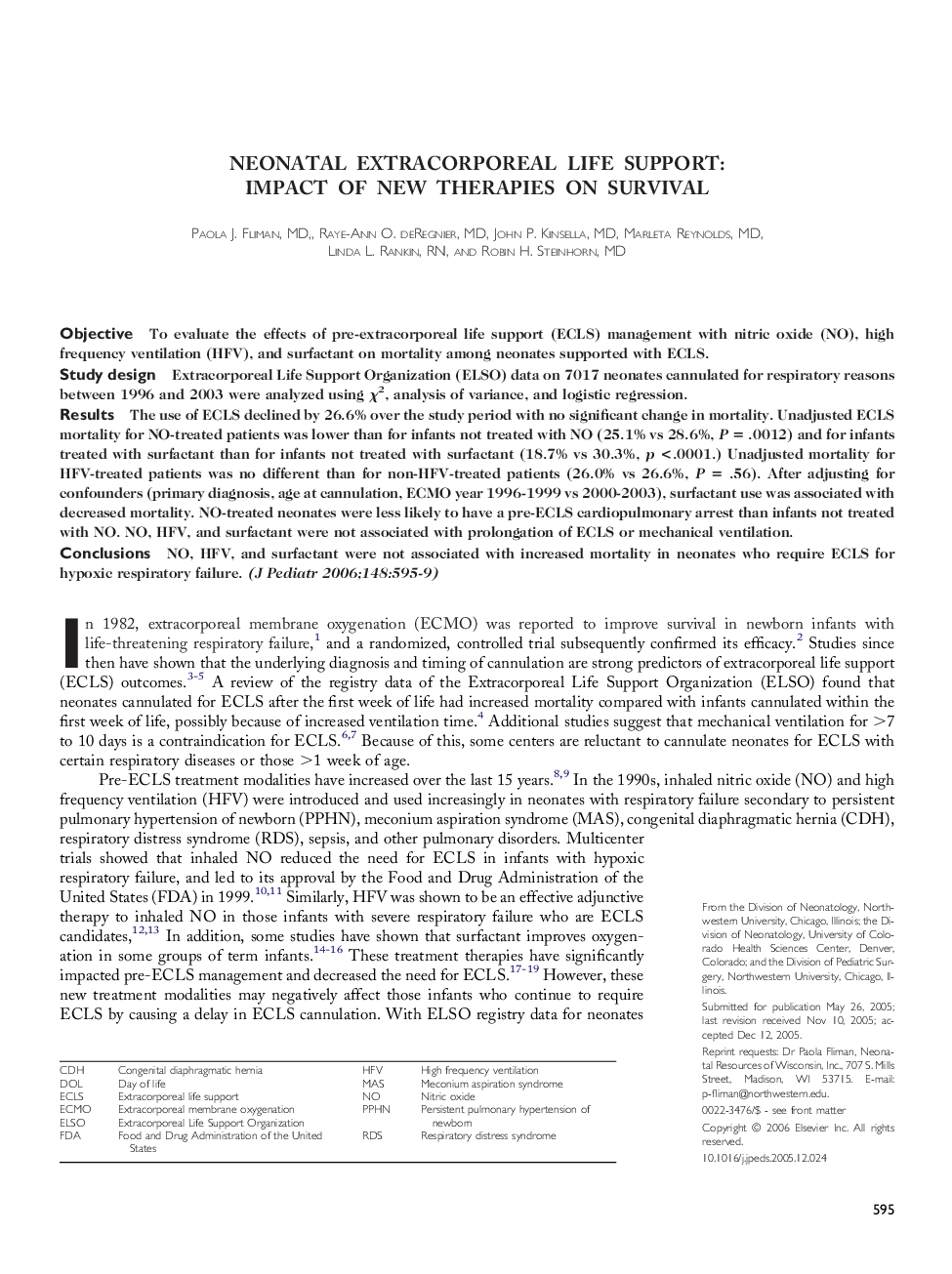| Article ID | Journal | Published Year | Pages | File Type |
|---|---|---|---|---|
| 4169608 | The Journal of Pediatrics | 2006 | 5 Pages |
ObjectiveTo evaluate the effects of pre-extracorporeal life support (ECLS) management with nitric oxide (NO), high frequency ventilation (HFV), and surfactant on mortality among neonates supported with ECLS.Study designExtracorporeal Life Support Organization (ELSO) data on 7017 neonates cannulated for respiratory reasons between 1996 and 2003 were analyzed using χ2, analysis of variance, and logistic regression.ResultsThe use of ECLS declined by 26.6% over the study period with no significant change in mortality. Unadjusted ECLS mortality for NO-treated patients was lower than for infants not treated with NO (25.1% vs 28.6%, P = .0012) and for infants treated with surfactant than for infants not treated with surfactant (18.7% vs 30.3%, p <.0001.) Unadjusted mortality for HFV-treated patients was no different than for non-HFV-treated patients (26.0% vs 26.6%, P = .56). After adjusting for confounders (primary diagnosis, age at cannulation, ECMO year 1996-1999 vs 2000-2003), surfactant use was associated with decreased mortality. NO-treated neonates were less likely to have a pre-ECLS cardiopulmonary arrest than infants not treated with NO. NO, HFV, and surfactant were not associated with prolongation of ECLS or mechanical ventilation.ConclusionsNO, HFV, and surfactant were not associated with increased mortality in neonates who require ECLS for hypoxic respiratory failure.
